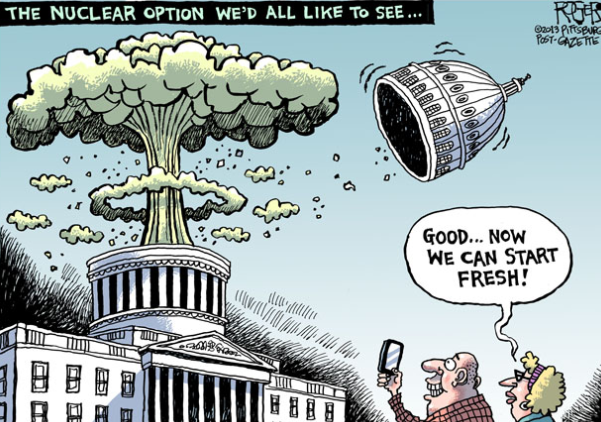The Implications of the Nuclear Option
April 11, 2017
The Nuclear Option has been a threat of Senators since its first mention nearly a century ago. Yet it has only been used twice in history: in 2013, to serve Democratic wishes to speedily confirm Obama’s Cabinet and just this week, to confirm new Supreme Court Justice, Neil Gorsuch. But what are its implications on American work and society?
Frankly, the answer lies in the polarization of American political culture. With the nuclear option now allowed for all Presidential appointee confirmations, the Senate majority party will almost always have their way in terms of appointments. While a presidential appointment would formerly tend towards the consensus candidate, nowadays it tends to be one who can toe the party line and work towards its objectives. Merrick Garland, for example, was nominated by President Obama to provide a more liberal perspective to the Supreme Court, he did not receive the courtesy of a hearing because….well, he was a Democrat. Mitch McConnell later called his partisan blockage one of his career’s shining moments.
As a result, it is now, unfortunately, safe to say that Donald Trump’s next appointment to the Supreme Court — probably replacing aging Justice Ginsburg — will be confirmed without the amount of debate or opposition necessary to effect a change in the court’s operation.
Photo Credit: Rob Rogers
